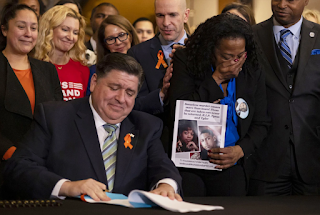Henry Kissinger died on Wednesday at his home in Connecticut, his consulting firm said in a statement. The notorious war criminal was 100.
Measuring purely by confirmed kills, the worst mass murderer ever executed by the United States was the white-supremacist terrorist Timothy McVeigh. On April 19, 1995, McVeigh detonated a massive bomb at the Murrah federal building in Oklahoma City, killing 168 people, including 19 children. The government killed McVeigh by lethal injection in June 2001. Whatever hesitation a state execution provokes, even over a man such as McVeigh — necessary questions about the legitimacy of killing even an unrepentant soldier of white supremacy — his death provided a measure of closure to the mother of one of his victims. "It's a period at the end of a sentence," said Kathleen Treanor, whose four-year-old McVeigh killed.
Pages
- Therapeutic Jurisprudence Centre
- Global Consultancy LLC USA
- AUGP Int Legal Secretariat
- Medicina-OIUCM Department of Law
- Global Role
- ISTJ Therapeutic Juris Blog
- Law Resources
- Oxford Journals
- Therapeutic Jurisprudence
- Universal Declaration of HR
- Law at Cambridge
- Religion and Philosophy
- Global Synod
- Medicina Therapeutic Jurispudence FB Page
- Publications
- Seminars
- Lectures conducted and Disserations Supervised
- Research
- Biography
Saturday, December 9, 2023
Henry Kissinger, War Criminal Beloved by America’s Ruling Class, Finally Dies
Sunday, October 1, 2023
‘Truly a David and Goliath case’: Six young people take 32 countries to court in unprecedented case
The European Court of Human Rights will hear an "unprecedented" lawsuit on Wednesday, brought by six young people against 32 European countries accusing them of failing to tackle the human-caused climate crisis.
The claimants, between ages 11 and 24 and all from Portugal, will argue that they are on the frontlines of climate change and ask the court to force these countries to rapidly accelerate climate action.
It is the first climate case to be filed with the European Court of Human Rights and is the largest of a total of three climate lawsuits the court is hearing.
Sunday, August 20, 2023
India’s supreme court issues handbook against use of archaic terms for women
India's supreme court has issued a handbook for judges urging them to shun words like seductress, vamp, spinster and harlot when talking about women.
Archaic terms that disparage women and perpetuate gender stereotypes can still be routinely heard in Indian courts long after falling into disuse in other countries. It is not unusual for a wife to be described as chaste or ladylike, and sexual harassment is routinely trivialised as "Eve-teasing".
The supreme court said its Handbook on Combating Gender Stereotypes was aimed at ensuring that "legal reasoning and writing is free of harmful notions about women".
Saturday, August 12, 2023
Illinois Supreme Court upholds state’s ban on semi-automatic weapons
In a 4-3 decision Friday, the high court found that the Protect Our Communities Act does not violate the federal Constitution's guarantee of equal protection of the law nor the state constitution's bar on special legislation.
The court also decreed that state Rep. Dan Caulkins, a Decatur Republican, and like-minded gun-owners who brought the lawsuit had earlier waived their claims that the law infringes on the Second Amendment to own firearms and could not raise it before the Supreme Court.
Monday, July 10, 2023
Israel does not have a right to self-defense for its occupation
As Israel was invading and bombing Jenin this week, AIPAC was pumping out a simple message: "Israel is right to protect its citizens from terrorism." Others echoed the same line, often including the false theory that Iran—which supports and backs Palestinian armed militant groups such as Hamas and Islamic Jihad—actually controls the Palestinian resistance, implying, ridiculously, that but for Iranian malfeasance, Palestinians wouldn't be fighting against Israel's occupation.
Israel's message from its own leaders makes the same case, with slightly different language. Opposition leader Yair Lapid, for example, put it this way: ""Our children are being slaughtered, and Israel has every right on earth to defend itself, and we from the opposition support the Israeli defense forces and the Israeli government on this matter." Lapid made that statement in English, meaning it was the version of Israel's message that was meant for foreign audiences, particularly Americans.
Click to read
Sunday, April 16, 2023
Harvard negotiator explains how to argue
Arguments are a necessary part of life, but they don't necessarily have to be fraught. Psychologist Dan Shapiro has identified three barriers to productive arguments: an us-versus-them identity, not showing appreciation, and a lack of affiliation. Breaking through these barriers requires us to be better listeners and to recategorize our sense of "us."
I hate arguments. I hate the way it feels when my blood pressure rises and the cortisol kicks in. I hate the frustration that comes from talking past one another or reaching an impasse on an important issue. I especially hate the awkward apologies I have to dole out the morning after — because I definitely shouldn't have said that, and yes, it was a cheap shot.





